Fishermen navigate rough times as costs of going out to sea rise
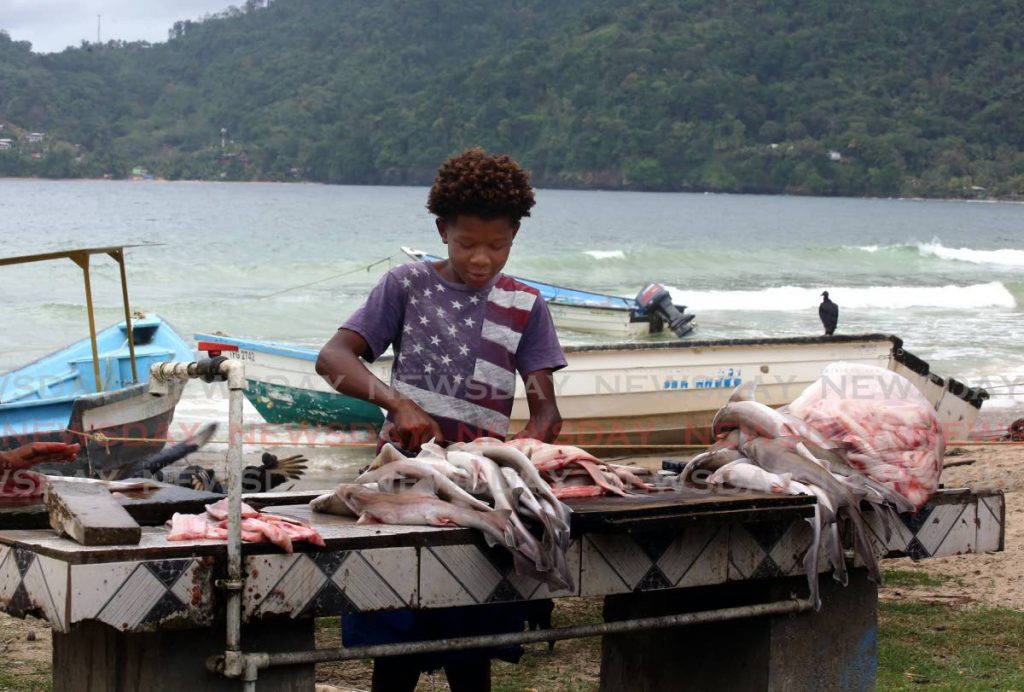
Trinidad and Tobago is home to 987 species of fish, 60 of which are caught for commercial use. There are about 65 fishing sites in Trinidad and 32 in Tobago.
In 2019, TT had 102 large-scale fishing vessels and 2,525 small-scale fishing vessels, with an associated 5,050 fishers.
But let’s be honest, has anyone ever seen a happy fisherman? One with no issues or problems, especially when it comes to money?
If your answer is no, it could be because fishermen in TT have, for years, faced issues which negatively affected their ability to supply fish and garner income to feed and support themselves and their own families.
Fishermen have always had to navigate rough seas, criminal elements, bad weather, practices like trawling and poor enforcement of the laws in place, but now, with unpredictable weather patterns causing fishermen to have less time at sea and gas prices spiking, their problems are increasing.
Gas pains
At the top of the list is the price of gas. When Business Day visited the west and north coasts of Trinidad last Friday, fishermen said the price of gas has cost them on average $1,000 a trip since the sale of regular gasoline was discontinued in 2018, along with the closure of the Petrotrin refinery.
In 2018, the Energy Ministry said demand was low, and at the time the country only produced 8,000-10,000 barrels a month. Paria Fuel Trading Company, which became responsible for supplying the local market after the closure of Petrotrin, said importing super gasoline would also be more economical than continuing to produce regular.
But that left fishermen dead in the water when it came to cheap fuel.
Fishermen, who usually use about 40 gallons of gas, plus motor oil, to venture out into the water nightly, would spend about $290 for every 20 gallons. Now, with only super and premium gas available, and subsidies removed, they pay more than $21 per gallon.
“In the super you are getting eight gallons for $100. In the premium you are getting five and a half gallons,” said Eversley Sookram, a fisherman from South Oropouche who came to Carenage about five years ago.
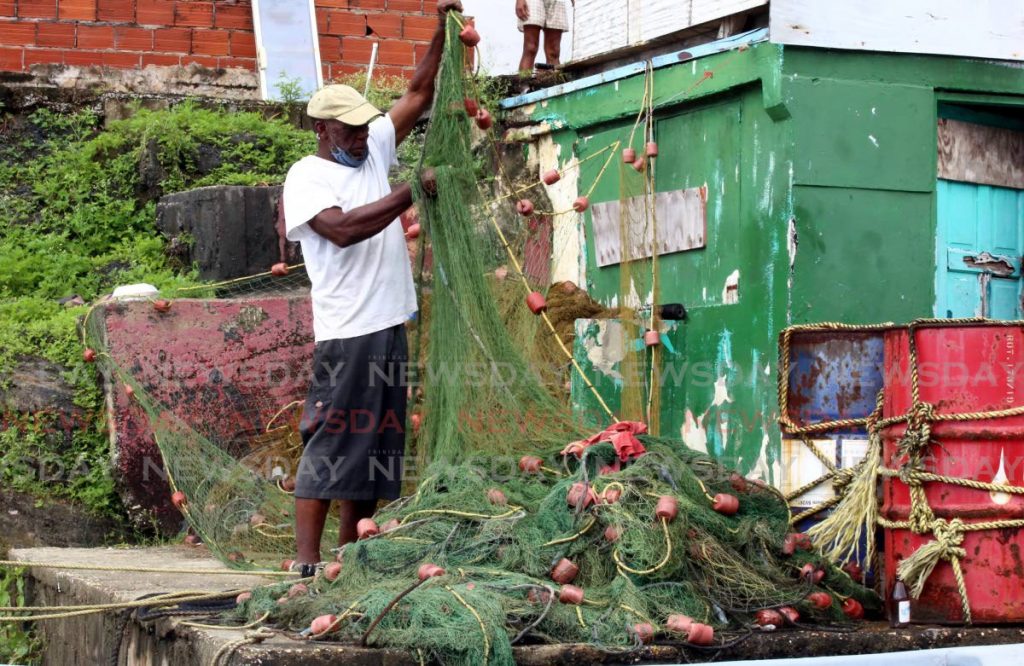
“Say you buy $500 in gas and go out there and you get no fish, you would have to come back, and that money that comes out your pocket,” said Mariella Alleng, who works in the Cocorite fish depot. “They're just not taking on the poor man.”
Their worries increased when it was rumoured that government was considering phasing out super gasoline, despite Energy Minister Franklin Khan's assurance to the contrary.
No bait, no fish
Even when fishermen get out to sea there can be issues with catching fish, because as the saying goes, every day is fishing day, but not every day is catching day.
One of the main components in catching fish is bait, and, because of practices like overfishing (fishing faster than it takes for fish to replenish their numbers) live bait is in short supply. Of course, people can use "rebel" bait – plastic bait – but it does not compare to the real thing, fishermen say.
Most local fishermen, those who practise bait casting, spinning and slow trawling (using several lines to snag more than one fish at a time) would usually use bait.
In one example of overfishing, an incensed 45-year-old fisherman, Neil McLawrence, based in Carenage, recalled in December that schools of sardine and joshua fish – both species best for bait – came to TT’s waters, but ignorance led to them all being killed for sport.
“We got blessings, but we didn’t know how to deal with it, so now it’s gone,” he said. “The amount of sardine I saw in December, I had not seen in years. They came in abundance in December and January – and people came and killed them out.”
McLawrence said people came from as far as south Trinidad, and some made off with as much as 500 pounds of sardine and joshua fish in one cast of their nets.
Trawling for shrimp, too, has damaged fishing beds, making it less attractive for fish to gather and spawn off TT’s coasts.
“They would have two big pieces of iron and a long net. Then they would take the net and drag the ocean floor. The shrimp would be running down and would collect at the bottom of the net. That dragging everything. If your house is down there, they are going with that too,” Mc Lawrence said.
If there are any surviving fish after shrimp trawlers pass, they go somewhere else to spawn – somewhere safe.
Asked what was being done to stop bad fishing and trawling practices, fishermen said: nothing.
There is no law against overfishing, and the Fisheries Act, in its current state, allows for trawling, despite its harmful effects along most of TT's coastlines, except for the North Coast.
Rough seas, rough time for fishermen
Rough seas make skilled sailors, but bad fishing. And with the effects of global warming leading to less predictable weather patterns, fishermen are spending less time at sea.
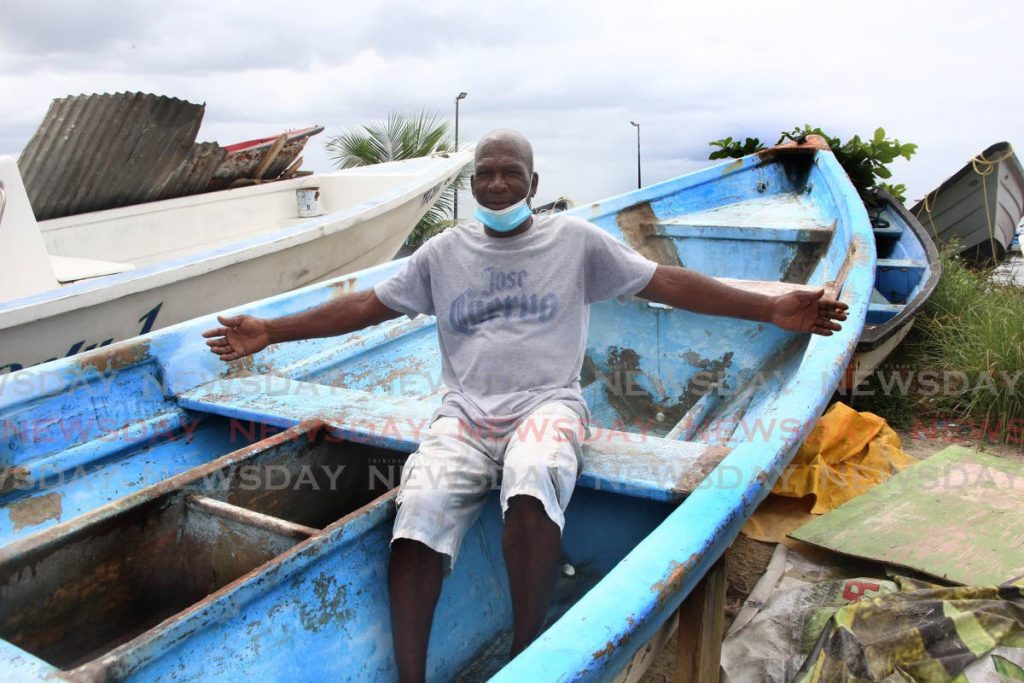
In a recent webinar on food pricing broadcast on YouTube, Agriculture Minister Clarence Rambharat said TT was experiencing more rough-seas bulletins than normal and added that changing weather patterns are a challenge for fishermen.
This week, low-level winds increasing from Monday, and long-period swells expected to affect TT would cause rough seas up to Thursday, the TT Weather Centre said. Although there were no rough-sea warnings from the Meteorological Office, TT was put on an adverse weather alert last weekend which noted “agitated seas.”
These new weather patterns are added to traditional challenges, like the brightness of the moon – darker nights make for better fishing.
“The moon is shining very bright, and that is not really good for catching bait,” Mc Lawrence said. “Right now, people are suffering because of that. No bait, no fish.”
Fishermen told Business Day they also have to navigate a rough time from government.
Those in Las Cuevas complained about infrastructure which has not been maintained by the government for over 30 years.
“They gave us a ‘temporary’ shed to put all our equipment in since I was eight years old,” said fisherman Jovan Clement, pointing at a dilapidated, rotting green wooden shed “I am 33 now. Watch it now.”
Another fisherman pointed to a bridge in disrepair.
“The ‘everlasting’ bridge that they said they gave us, dry-rotting. Government narrowed down the river and now every time rain falls, we get flooded out. If you go to Blanchisseuse you would see how they get treated. But in Las Cuevas, they just abandoned us.”
They also complained about jetties. In Carenage fishermen complained that there was a straight jetty, where it is supposed to be in the shape of a “T” or an “L.” This allows for boats to tie off safely on the jetty, while otherwise rough winds and seas could lead to boats running ashore and being damaged.
Martin Salvary from Las Cuevas said his boat ran ashore recently because of unpredictable weather. He found it turned over on the shore and half full of sand.
“For the entire week I wasn’t able to go out. We are now trying to take down the engine and fix the nets. The boat got a little damage. It sank and was going down in the sand. The whole boat was filled with sand so we could barely get the net out.
"Up to now I can't catch my breath. It is real pressure.”
Carenage fisherman Junior Cupid said after his boat engines were stolen and a fire broke out at the Carenage fishing depot in 2013, he was only able to get another engine last year.
'No drugs on our boats'
Crime was among among the factors Rambharat listed last Monday that hinder the fishing industry, which he said has been infiltrated by criminal elements.
“Not every fishing pirogue you see out there is for fishing,” Rambharat said. “And because of that influence around the areas where we have fishery facilities, we see the destruction.”
He pointed out that although the Blanchisseuse fishing facility is opposite the police station, criminal elements have been absconding with items from the construction site, making it difficult to complete the work.
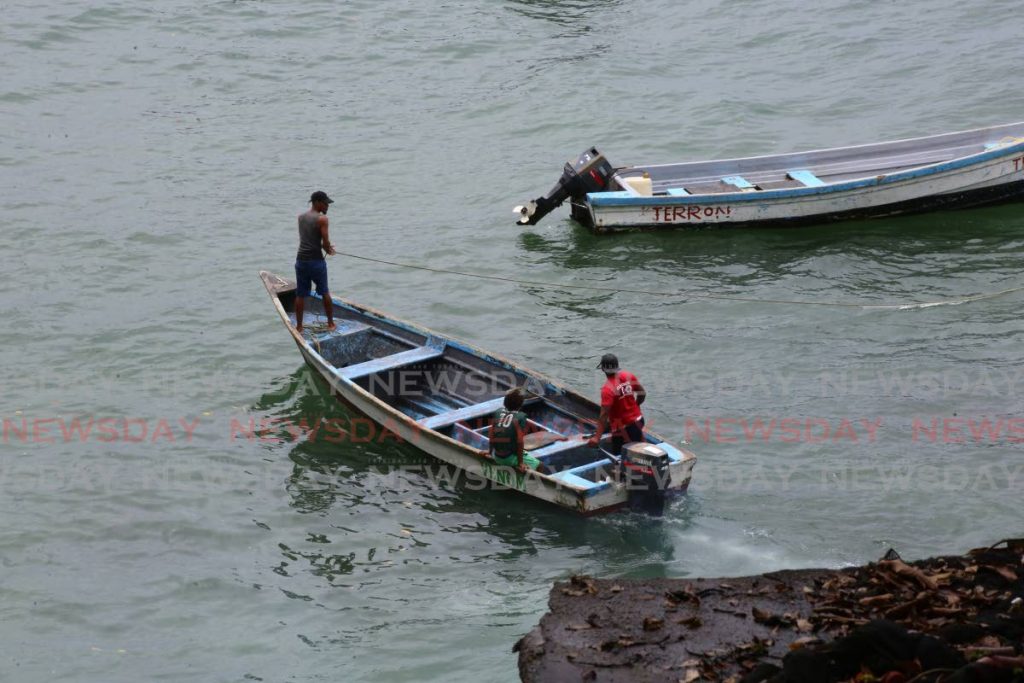
“Every time we get to the electrical or some other thing that could be removed or stolen, people remove it.”
In response, the fishermen who spoke to Business Day said their vessels and depots are strictly for legal catches.
“Here has no drug boats,” said Cupid from Carenage. “That is not that kind of port. If this was a drug port, police would always be here, and we would have better security.”
Fishermen said while there are ports where illegal activities go on, they are separate and apart from the mainstream fishers, whose ports are family-friendly areas.
“It is nothing but good hospitality here,” Mc Lawrence said. “If here was a drug port, not everyone would be able to come here. But everyone comes here – children, women, all kinds of visitors. When you come on a weekend you see children from the area playing and gathering around, because this is a family place.”
Fishermen did say criminal activities like theft and gang activities affected their ability to go out to sea – but also that they have not been a major problem for years.
“Things have cooled down a lot,” said Cupid, “But before, all 3 am to 4 am you could not come out of your house.”
The Fisheries Management Bill
Rambharat complained that the legislation which supports the fishing industry may also be outdated.
“For more than 100 years, we have had the same piece of legislation for fisheries, which is about nine clauses. That has led to the destruction of the marine environment, in particular the fishing grounds, the inability to control the trawlers and so on.”
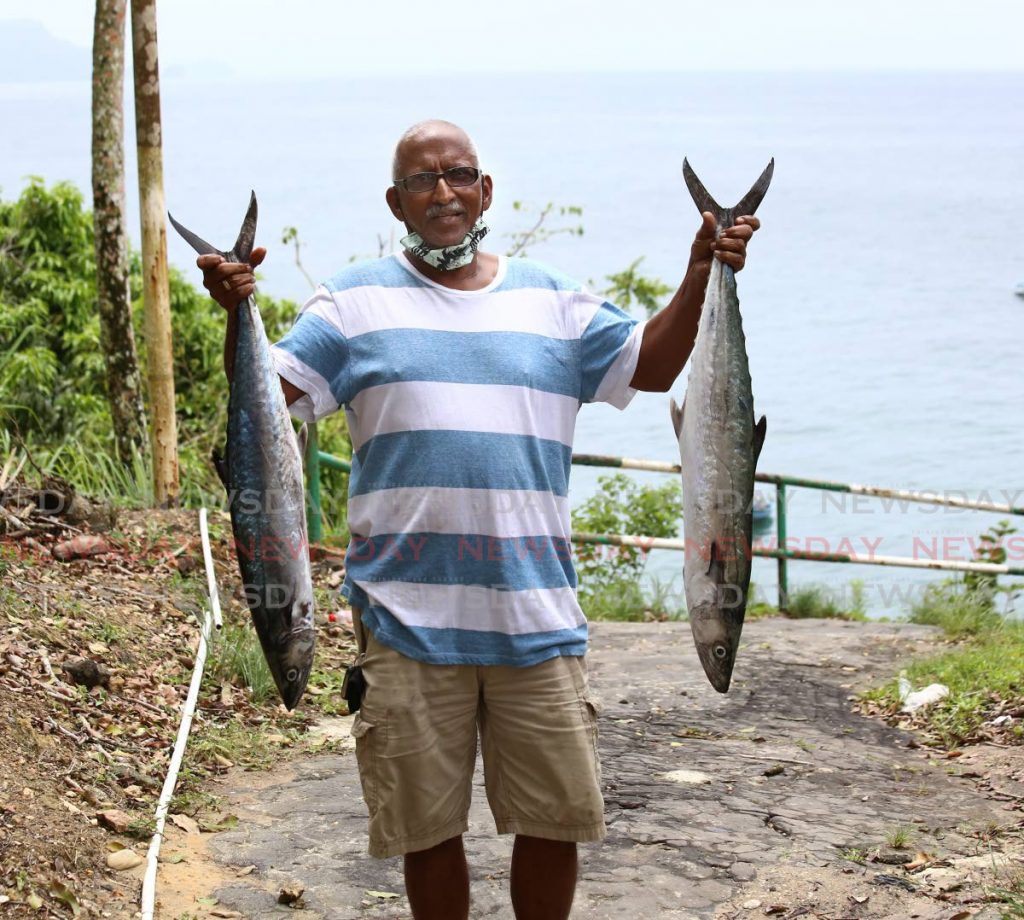
- Photo by Sureash Cholai
The fishing industry is governed by the Fisheries Act, first proclaimed in 1916, and amended in the 1970s.
Other acts and bills which treat with the fishing industry include the Control of Importation of Live Fish Act; Archipelagic Waters and Exclusive Economic Zone Act; and the Fishing Industry (Assistance) Act of 1955.
In June last year, Government laid the Fisheries Management Bill to regulate and modernise the industry. The Prime Minister noted that it was the first time in 104 years that the act had been updated.
The 376-page bill would strengthen and incorporate fisheries management and international obligations, create a legal basis for compliance, solidifies an authorisation process through licences and permits which would deter illegal activities and provide relevant and valid laws for fishermen to abide by.
The bill is now the subject matter of a joint select committee chaired by Rambharat. Thus far, Parliament has not debated it.


Comments
"Fishermen navigate rough times as costs of going out to sea rise"